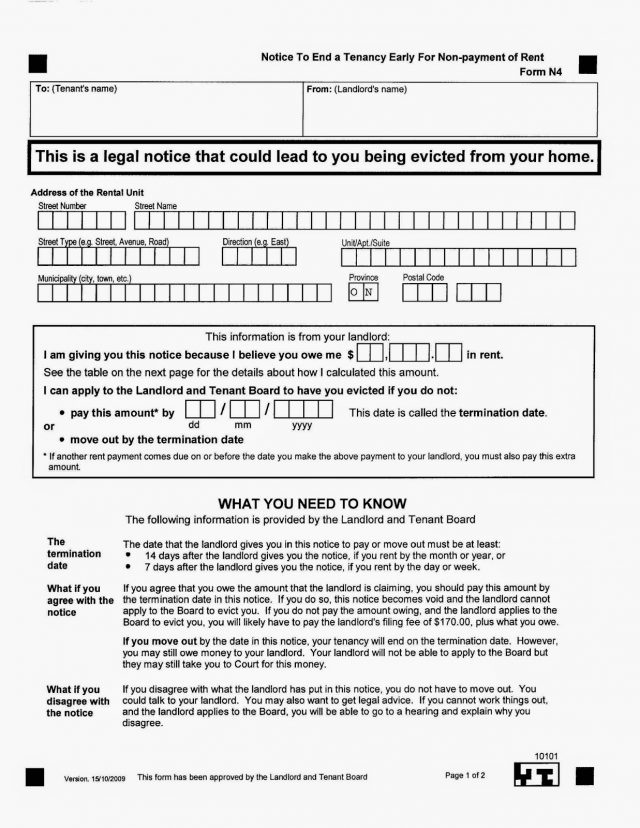
There are lots of new rules for landlords in Ontario in 2017
With new legislation coming to Ontario to protect tenants our province-wide landlord community wants changes to also protect good small landlords & investors who provide high quality, affordable rental housing in Ontario
With property prices increasing in Ontario the provincial government announced they would be making some important policy changes that would protect tenants and home buyers and owners.
There was to be a bunch of comprehensive measures which would bring stability to the housing market. This made many small residential landlords interested in what would happen.
As home-owners who run rental businesses, small landlords are important stake-holders in Ontario. None of us wants instability and a lot of landlords were looking forward to the announcement of the new measures to strengthen the housing market and rental industry in our province.
What Are the New Rules For Landlords?
The Premier, the Minister of Finance and the Minister of Housing spoke at the press conference on April 20th. The weather was a bit wet and the sparrows were making sure their chirps where heard (as the Housing Minister noted at the press conference).
Our community networked and lots of us viewed the Ontario Premier’s YouTube Channel to watch the press conference. We were eager to find out what the new rules would be to help make the housing market more stable to help tenants and landlords and improve the Ontario rental industry.
Among the changes was a 15% foreign speculation tax, changes to allow municipalities to discuss creating their own vacancy taxes, and allowing some surplus lands be made available for rental property construction.
There was also talk of of big changes to the way landlords can do business in Ontario under what is called Ontario’s Fair Housing Plan.
The announced changes included:
1. Newer Rentals Will Covered By the Rent Control Guideline
If your property was built after 1991 your property will now be covered by the rent increase guideline.
This means you can no longer raise the rent as much as you want to cover your costs. The 2017 rent increase guideline is only 1.5% New condo owners will now be covered by the rent increase guideline.
2. Utilities Can’t Be The Reason For Your Above Rent Increase Guideline Application
So it utilities go up a lot you can’t raise the rent for this reason.
3. Own Use Application Will Mean You Have To Pay Your Tenant 1 Month Of Rent
You can also offer them another acceptable unit to rent.
4 Standardized Rental Documents
The government will prepare and distribute certain documents that landlords will be required to use.
Ontario’s Fair Housing Plan And Changes To How Landlords Can Run Their Rental Properties
While landlords understand the importance of protecting tenants, many in our community have serious concerns over these changes. For example:
Rent Control on Newer Properties
Many new condo landlords invested in condos over other types of properties (and invested in rental properties over other types of investment vehicles) because they had the flexibility of raising their rents annually in order to cover any increasing costs (like maintenance fees, etc.)
By including post 1991 properties under the Rent Increase Guideline it may lead to many landlords/investors selling their rentals and thus causing the number of rental units to decline in Ontario.
Utilities
Many members of our landlord community list rising costs of operating their rental businesses as one of their biggest worries. If utilities increase dramatically it will have a strong negative impact on small landlords.
It may even lead to more landlords renting out “non-inclusive” of utilities leading to more pressure on tenants.
Lease Documents
Our community believes this will have a strong negative impact on both small landlords and tenants.
Many aspects of the landlord tenant relationship are not covered in the Residential Tenancies Act.
Our most experienced and successful small residential landlords like to get everything agreed to by all parties at the beginning of a tenancy. They make sure everything is clear and everyone understands what has been agreed upon.
With a strong and clear comprehensive residential tenancy agreement (“lease”) things such as laundry use, shared common spaces and shared driveways can be agreed upon prior to a tenancy beginning to avoid potential confusion or conflict later on. A good lease with agreed upon clauses helps both good landlords and good tenants.
Let’s Include A Lot More in the Ontario Fair Housing Plan To Protect Small Landlords
Last year the Province contacted us and said they wanted ideas and suggestions on how make changes to the Residential Tenancies Act and the Landlord and Tenant Board to encourage more people to invest in rental properties in Ontario.
So we asked our community for some ideas on how to improve the rental industry and had a huge response from places ranging from Thunder Bay to Hamilton to the Niagara Region, Toronto, Ottawa, Kingston, etc.
Thousands of ideas were presented and the OLA made a submission to the Provincial Ontario government.
Since changes are being made to the Residential Tenancies Act now with the Ontario Fair Housing Plan let’s take this opportunity for true comprehensive changes and improvements to overhaul the current system and help both good landlords and good tenants and improve the entire Ontario rental industry!
Here are just some of the changes our landlord community would like to see happen soon:
(1) Landlords Should Be Able To Charge A Damage Deposit If All Parties Agree
This was a very popular idea within our community. By making sure tenants have some “skin in the game” they will be more careful in the rental unit and won’t leave garbage or needed repairs when they move out.
As it is now, landlords will need to go to Small Claims Court to recover their losses. And when tenants moving out leave garbage and damages behind it hurts new tenants who are moving in the same day.
Our community lists the need for a damage deposit as one of the key changes needed to improve the Ontario rental industry.
(2) No Pets Should Mean “No Pets” (and we need to be able to charge a pet deposit)
The overwhelming response in our community is a love for pets.
The issue is some tenants don’t take care of their pets properly and that means damages to the rental unit.
We have many landlords who have stories of dog and cat urine soaked carpets. And tenants saying they don’t have pets, and then bringing in lots of dogs and cats the same day they move in.
The OLA has suggested a “pet deposit” that pet-owning tenants could pay to help ease the financial fears of having people move in and having pets lead to thousands of dollars in damages.
To be fair to tenants, a Toronto landlord suggested if there are no “pet damages” their deposit will be fully refunded and tenants will have a way to make sure it happens. If for some reason it’s not, the tenant can go to the LTB to get it back in a simple, easy and fast manner.
(3) We Need a Quicker and More Efficient Way To Evict Non-Paying Tenants
It can now take months and even years for landlords to evict non-paying tenants. If you want to encourage more people to invest in rentals in Ontario this needs to change.
For example, we should change the N4 period to receive rent from 14 days down to something more reasonable such as a week or 48 hours.
Hearings at the Landlord and Tenant Board should be guaranteed to be held within 14 days.
If the Enforcement Office cannot evict a tenant with a week, landlords need to be able to hire private bailiffs to fulfill and eviction order.
(4) Fast Evictions for Tenants Who Harm Other Tenants, Their Landlord, Or Seriously Damage The Rental
While this may sound a bit ridiculous for non-landlords, tenants who harass other tenants or their landlords is the reality for many of us.
This needs to change and landlords need a fast and efficient way to evict in these situations. A system such as Alberta landlords have would be a good policy for Ontario.
(5) When a Lease Ends Tenants Shouldn’t Automatically Become “Month by Month”
Tenants In Ontario tenants have ‘security of tenancy’. This means even when a mutually agreed upon lease is signed with a date for the termination of the lease, tenants can still stay on as monthly tenants afterwards.
This can become a real problem for small landlords as it doesn’t allow for any business certainty for future actions.
One Ottawa landlord wrote “In the province of Ontario it’s far easier to divorce your husband than it is to end a relationship with a tenant renting your basement.”
Is this the type of policy that encourages more good people to invest in rental properties in Ontario? No.
Many new landlords are not aware of security of tenancy laws in Ontario and are shocked when they find out.
(6) How About Different Rules for Corporate Landlords & Small Landlords With Rentals of 3 Or Less Units
We know there are problems in many of the big rental buildings out there.
By helping creating a fairer and more just system for small landlords there would be more investment in the industry and more rental properties available for tenants.
For example, small landlords can’t afford an expensive legal team to represent them at the LTB.
We also don’t have thousands of units, so one non-paying tenant can lead to extreme financial and emotion stress on the small landlord.
A better system that protects small landlords would also encourage more investment by people who would be excellent, service-oriented housing providers.
These are people such as teachers, mechanics, dentists, nurses and all sorts of working people who want to invest in residential rental properties as a business and a way to help themselves financially.
New Rules For Ontario Landlords in 2017
With all the new changes many in our community are asking “what about rights for small landlords?”
How about we work together for a system that helps both good tenants and good landlords? Let’s improve the Ontario rental industry and let’s do it now!
Let’s Support Small Landlords And Investors Who Create So Many Great Rental Properties For Tenants!


















